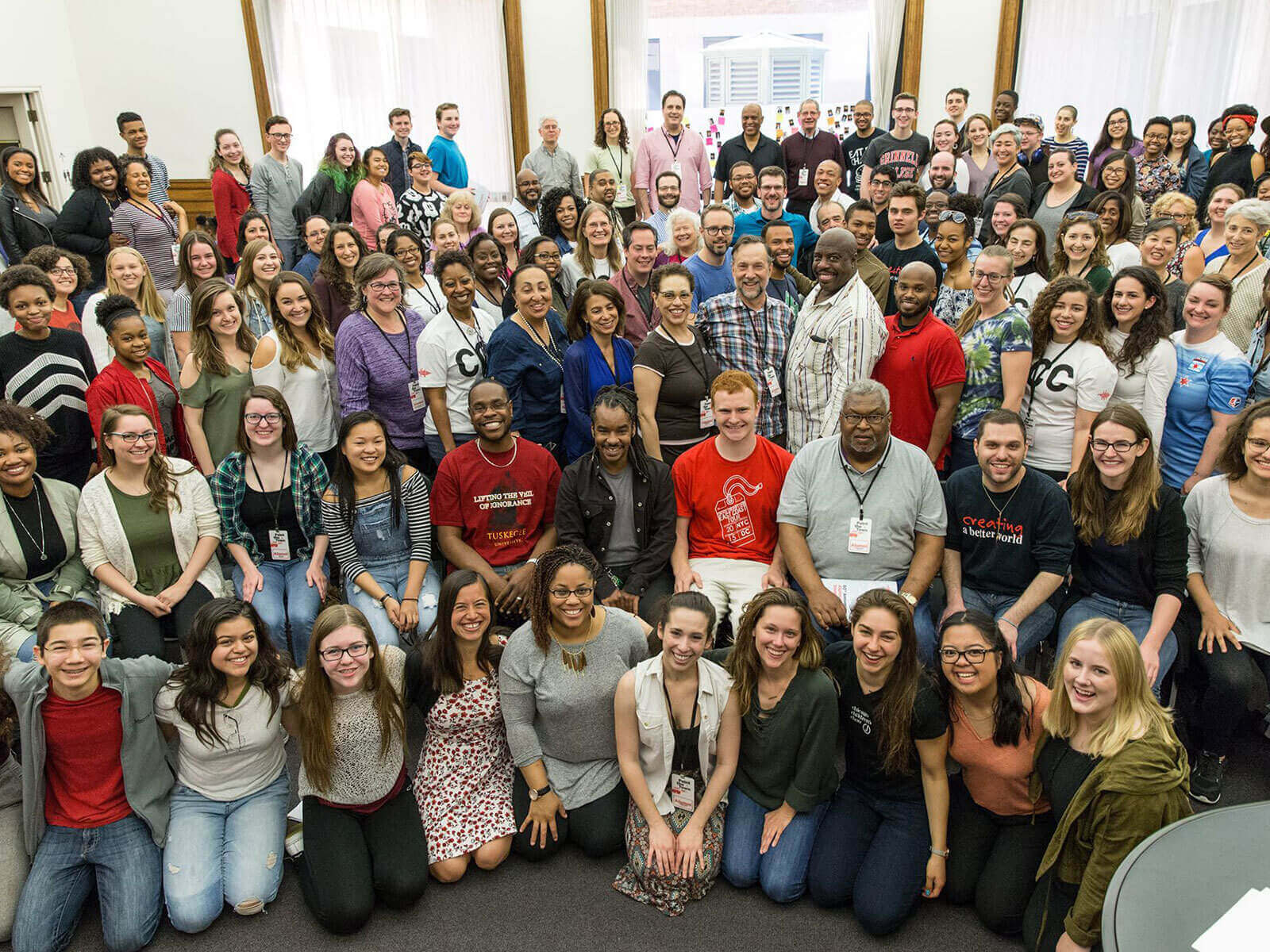
During his time in Uniting Voices, Kyle Sircus learned what collaboration was onstage, performing on tour and with arts organizations like Steppenwolf Theater and the Lyric Opera of Chicago. But when it came time to choose a career, his path took him backstage. Kyle’s professional development journey in the worlds of arts administration and musical production has included stops at Playwrights Horizons and the Berkeley Repertory Theatre. While at Playwrights Horizons, he worked on A Strange Loop, which would go on to win the Tony Award for Best Musical and the Pulitzer Prize! His latest stop is with TodayTix Group, where he works as the Senior Director of Partnerships, North America.
We spoke with Kyle about his new position at TodayTix, why endless curiosity is key to success in the arts and how Uniting Voices gave him the tools to thrive in arts administration.
Uniting Voices (UV): You recently accepted a position to lead North American partnerships at TodayTix. How did your experience in Uniting Voices prepare you to take on this new role?
Kyle Sircus (KS): TodayTix is on a mission to find a seat for everyone, and that hews closely to Uniting Voices’s mission of giving every young person a voice and creating a better world through music. Throughout my seven years singing with Uniting Voices, I was exposed to so many different art forms. I got such a meaningful taste of the different kinds of arts and culture organizations who now form the backbone of my work across the country.
There’s no doubt in my mind that singing in Voice of Chicago (formerly Concert Choir) modeled what true partnership looked and felt like. My fellow singers, Josephine, and other collaborative ensembles and conductors taught me what musical partnership meant through active listening, balance, and leadership within a large group. I harness those skills every single day in my professional life.
UV: What’s one piece of advice you would give to a singer or alum who wants to pursue a career in arts administration?
KS: This is a question I get whenever I talk to folks looking to start their career. So much of this differs person to person, especially with how they’re looking to grow and make an impact. For me, there are a few throughlines. Endless curiosity – across artistic disciplines, job functions and your own capabilities – is key, because versatility helps you grow and prove yourself to others, no matter where you’re working. Relationships are critical. You never know who you’ll be working with. Never underestimate maintaining a positive reputation and meaningful connections with those who’ve crossed your path—beyond just good karma, these make all the difference.
UV: How did your experience in Uniting Voices shape the way you see the arts landscape of the country?
KS: Arts organizations are currently working to cement equity and diversity as core tenets of what they produce and how they operate. This is a necessary change that is long overdue. These values were embedded into Uniting Voices from its founding in 1956 and had a deep impact on me both artistically and personally. I cherish infusing my work with these foundational values that formatively shaped my early years.
Just as Uniting Voices reflects the city of Chicago, each city has its own artistic heartbeat. Honoring and uplifting what makes a given city unique in its cultural landscape is foundational to my work and something I’ve carried with me since singing with Uniting Voices.
UV: What’s the biggest lesson you learned in switching from performing onstage to working behind-the-scenes?
KS: It was always clear to me that the performers onstage were only half the story: where would we be without Cece having extra uniform items on hand, getting us to the venue on time, or making sure we were fed? My senior year, I served as the singer representative to the Board where I further deepened my appreciation of all the roles that make Uniting Voices a thriving nonprofit organization: fundraising, marketing, finance. No one function can exist alone, and everyone needs to play as one team with shared goals. And it pays to understand how the work of others contributes to the end result. Thankfully, I learned this lesson early—and apply it often!
UV: Your work involves a decent amount of time on the road. How did touring with Uniting Voices prepare you for traveling?
KS: More than I expected! I’m comfortable with early mornings, long flights and changing clothes in confined spaces. And I always try to experience local culture. Perhaps the biggest takeaway was our pre-tour meetings where we were always told that our tours were ways to experience the culture—that meant eating what we were served, understanding local customs and appreciating that our non-musical activities were meant to immerse us. I take that lesson with me on work travel and beyond!
UV: What’s your favorite piece of theater that you’ve seen in the past few years?
KS: I could never pick just one! So here are a few: A Strange Loop, which I helped produce before it won the Pulitzer and Tony for Best Musical. & Juliet which is filled with songs from my Uniting Voices years and gives major show choir energy. And my favorite dance performance I’ve ever seen was a Justin Peck ballet, featuring a live choral performance of Caroline Shaw’s Partita by Roomful of Teeth. It was the most transcendent cultural experience I’ve had in years.